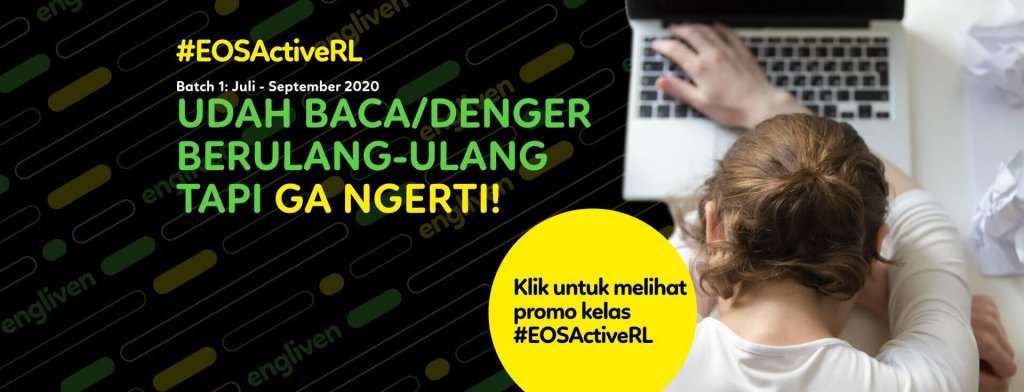Seri #AcrossTheGlobe kali ini kembali dengan pembahasan kehidupan pasca-Covid 19, terkhusus tentang flattening the curve. Bila sebelumnya kita membahas bagaimana new normal diterapkan di Amerika Serikat, dalam Instagram live minggu lalu, Elisa berkesempatan untuk mewawancarai Arla terkait bagaimana Austria berhasil flattening the curve dalam menangani Covid-19. Tidak hanya itu, Arla sempat membagikan tidak hanya terkait cara mendapatkan beasiswa di luar negeri, tetapi juga tentang English learning journey-nya, yakni terkait tips dan triknya selama mempelajari bahasa Inggris.
Arla saat ini sedang menempuh jenjang doktoral Teknik Kimia di Wina (Austria). Sebelumnya, Arla menempuh jenjang S1 di Bandung, dan berhasil mendapatkan beasiswa Erasmus Mundus untuk menempuh jenjang magister di tiga negara Eropa (Perancis, Polandia, dan Spanyol).
So, without further ado, let’s check it out!
That De-Escalated Quickly
In Austria, the first case of Covid-19 was confirmed on February 25 in Tyrol, which resulted in a nationwide lockdown on March 16, shortly after Italy. However, the hot spot was not in Vienna, but in the ski resort where tourists spent their winter there–hence the government locked down the resort only instead of the whole nation.
Furthermore, Austria implemented an exit restriction (instead of national lockdown), where people weren’t allowed to go outside except for essential work, or to help others, e.g. to help older/sick people and exercise (e.g. jogging, biking, etc., but calling a friend to jog together is prohibited). On March 17, the Austrian government announced the closure of the shopping malls, schools, and the unessential (non-basic) shops, only grocery stores, and pharmacies are allowed to open.
How about the new normal in Austria? Stores in Austria have gradually reopened starting from the middle of April. For example, schools are open and students are divided into two shifts: half of the class goes to school every Monday, Wednesday, and Friday, whereby students must wear masks and bring their own hand sanitisers. Restaurants also reopen, with a restriction on how many people can stay inside (e.g. 10 people).
Then, in order to flatten the curve in Indonesia, what can we learn from Austria? Arla shared two things:
- The government’s fast response: Since it is the scientists and the government that hold the data, they’re responsible to communicate what society has to do. For example, even though wearing masks was forbidden in Austria–it is now obligatory.
- The obedient society: If there’s a regulation, we have to obey it. Austrian society sets a good example of being obedient to the regulations imposed by the government.
In Indonesia, several regions have started the so-called new normal, although positive cases are still increasing. Discipline and obedience is the key in this new normal to flatten the curve. If not us, who else can flatten the curve?
On English Learning: Mistakes Are Fine!
In Arla’s career as a scientist/researcher, English is her working language. That means, she has to write papers, communicate, even read scientific papers in English. This is important especially in the international environment where she’s in.
Moreover, she has several tips on how to improve our English, such as:
- Keep practicing! Practice makes perfect. You can practice pronunciation with a native speaker, for example, or have your English teacher (if any) correct your grammar if you’re making a mistake. It’s okay to make mistakes because we can learn and improve from our mistakes, right?
- Join English clubs: English clubs consist of those like-minded people who’d like to improve their English skills. Ms Elisa, the founder of Engliven, was also actively involved in an English club during her undergraduate study in Jakarta. At English clubs, you could talk about any topics in English, join competitions and the board of Management, etc. So don’t hesitate to join if there’s one in your environment!
- Immerse yourself in the English language. This means you have to get exposed to English as much as possible, such as reading this blog, listening to your favourite music/podcast in English, or even Netflix and chill with your favourite English series.
The good news is, Engliven provides various learning opportunities to practice your English. A lot of Indonesians are concerned on grammar, so we help you tackle this by conducting Engliven Online Series: Grammar Fix (#EOSGrammarFix) which is going to be held in July-September 2020, with Live Zoom lessons (not pre-recorded) by Ms Elisa, Q&A sessions, and most importantly, guides and tips to kickstart your self-learning.

Not only will you get the basic functions of all English tenses, but you’ll also learn Indonesians’ common mistakes when making sentences in English. You’ll get materials from British English curriculum with new friends in the next three weeks on a WhatsApp group. Therefore, you’re not practicing alone – but it’s only for 50 people! Go sign up before it’s too late.
To support our students and followers, Engliven gives away 1 free access to either one of the Online Series mentioned earlier to 1 winner of #BeraniSalahInggris challenge, in which you can make a sentence out of a subject and a verb, before throwing a pair of different subject and verb to your friends. The message of the challenge is, again, “don’t be afraid of making mistakes as we all can learn from it!” Win the challenge and make as creative video as possible: because the sky’s the limit!
A free 3-month course? What are you waiting for? Grab your phone and start practicing!
How About Overseas Scholarship?
Aside from English learning, Arla shared how we can get a scholarship to study abroad! Beside preparing for TOEFL/IELTS, she recommends researching the language requirement of the scholarship we’d like to apply for. After knowing your target score, start practising to get that particular TOEFL/IELTS score, as well as preparing the personal statement, academic transcript, and recommendation letter.
Since studying overseas also requires a daily understanding of English, we have to practice every aspect of it; not only speaking but also basic listening and reading. Yes, you will need the practical skills to understand tons of information before you do groceries and make friends with the natives. This is why we are having another Online Series on Active Reading & Listening (#EOSActiveRL) in July until September 2020 to help you get the confidence at least before you start speaking.

So, what are you waiting for? Go sign up and don’t stop practicing!
Vocabulary Corner
- FLATTEN THE CURVE: Flatten the curve is actually a phrase that means “melandaikan kurva”. The curve itself pertains to the Covid-19 spreading curve, which allows healthcare services to better manage the same volume of patients. This is different with a declining curve, where the Covid-19 cases gradually decrease after time.
- PROHIBITED: This can also mean forbidden, a.k.a. “dilarang” in Indonesian.
- THE SKY’S THE LIMIT: This is an English idiom which is equal to “nothing is impossible”. That is to say, there’s particularly no limit to anything. As long as we try, we can make it through.
- PRACTICE MAKES PERFECT: This idiom means “if you practice, you’ll get better”. Practice requires discipline and makes you improve your skills on a daily basis.
Quiz
- In the article, there’s a phrase “… like-minded people”. How do you say liked-minded people in Indonesian?
- Translate this sentence into English: Tidak ada yang mustahil bagi kalian untuk mempelajari bahasa Inggris dengan baik.




